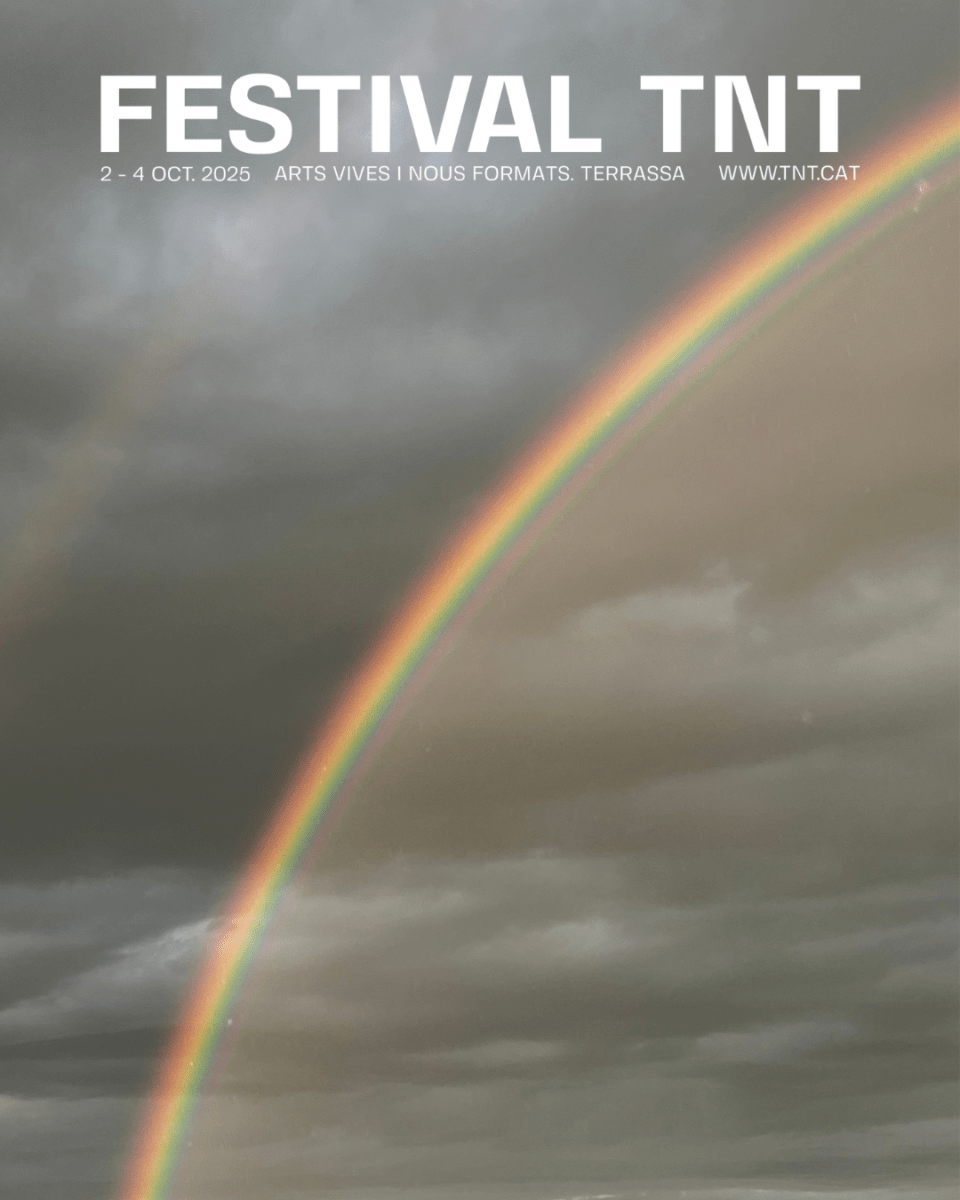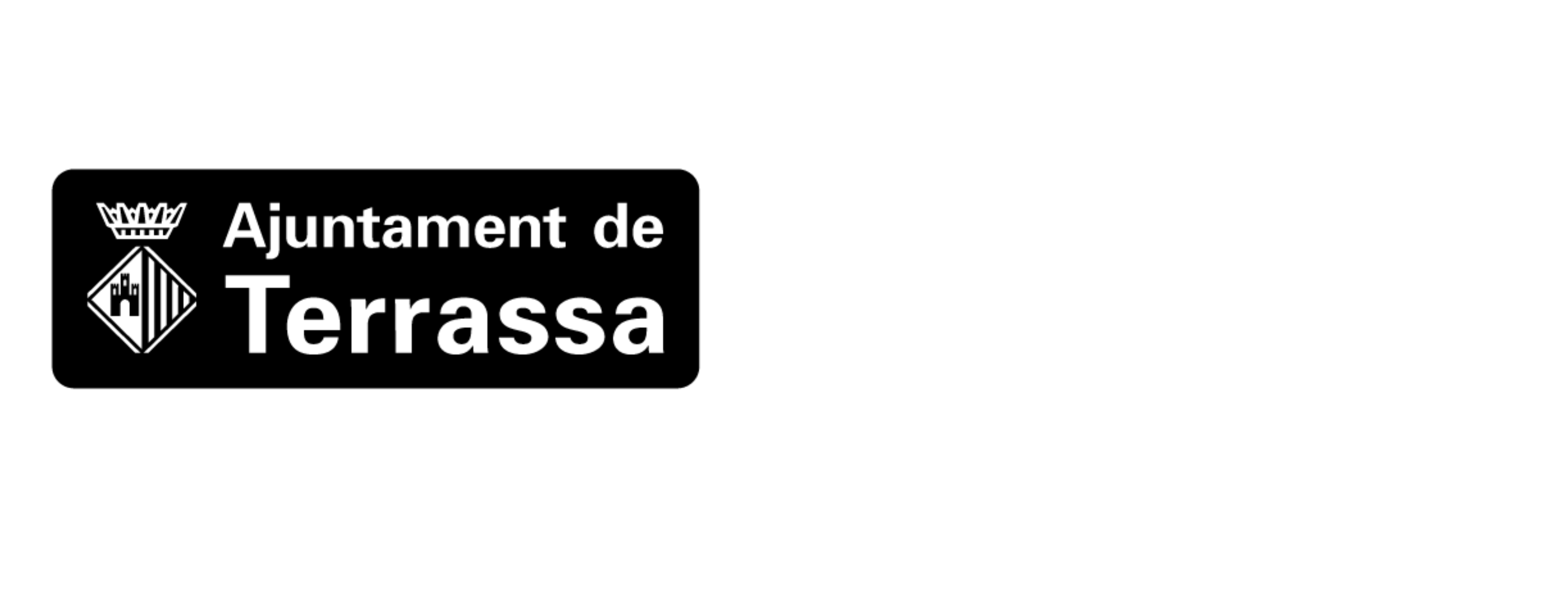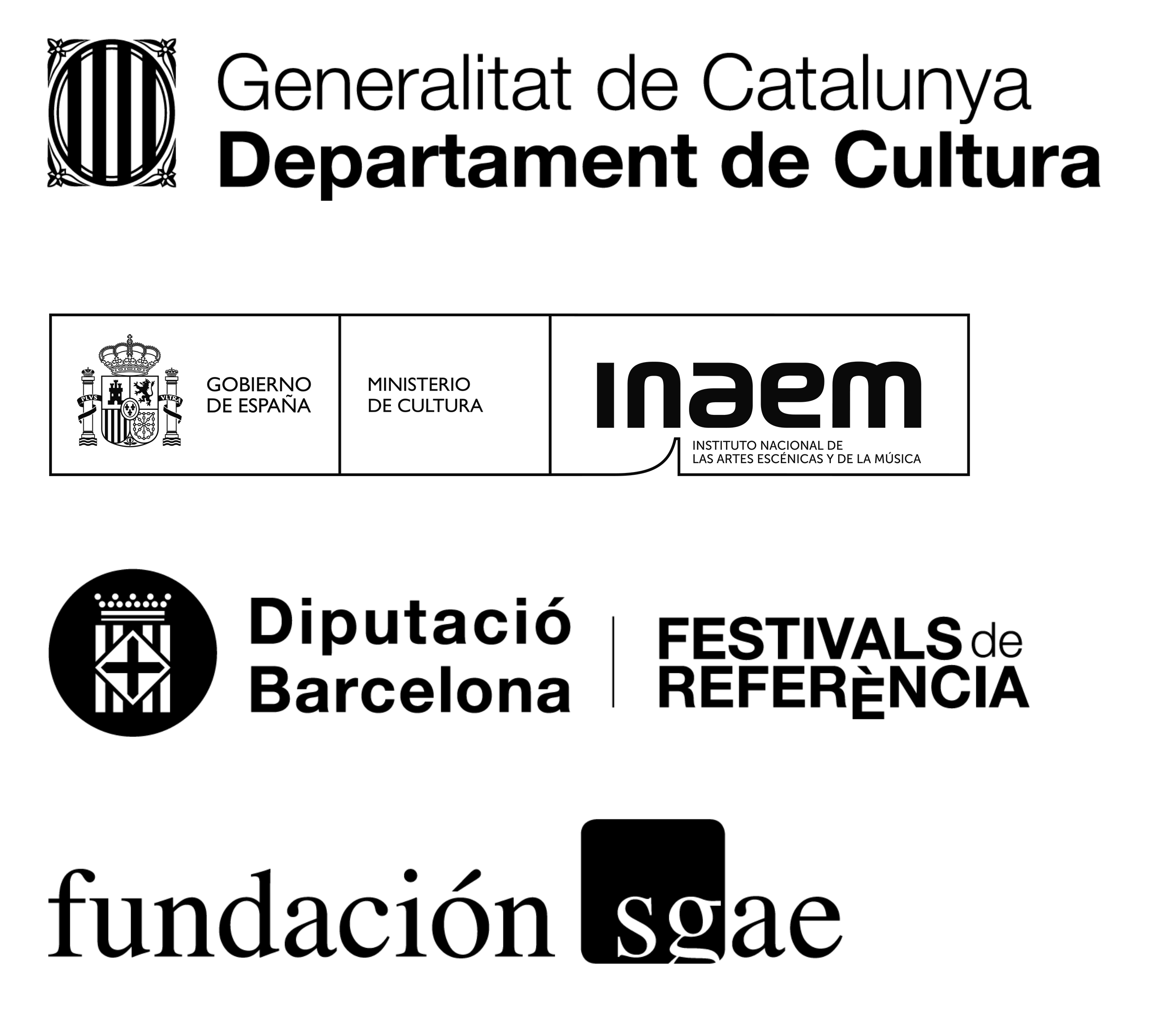CONCERT – VERMUT
Tronco
Plaça Didó Free

2nd - 4th October 2025
A rainbow is an optical phenomenon that conjures beauty out of sheer chaos. It can appear at any time, crossing the sky without warning. It is an enigma: we do not know when or where it will come, or how long it will last. But when it does reveal itself, it does so obstinately. Anyone who sees a rainbow knows they will see one again. For these reasons —and perhaps a few more—, the rainbow is the metaphor that explains and affirms this year’s TNT festival, where we hope to offer a framework for resistance, optimistic resistance, a place where we can gather together to think, to regain our composure and our dulled sensitivity, to explore what is so hard to understand, and to contemplate what we had forgotten still exists. Where can we find joy? Where can we find beauty? And hope? These are not simple questions nowadays.
This year many of the pieces on the programme are by artists who treat the stage as a practical space from which to reflect on today’s most pressing issues. In a hybrid blend of performance, experimental film, choreography, light, anthropology, object theatre, and much more, we find five examples of a clear concern with images. In an age of over-abundance, servitude and dependence on pictures, we ask how they shape our subjectivity. We are devoured by images, that we know for sure, but creator and thinker Marta Azparren goes further: might we actually feed on them, physiologically, like the 19th-century hunger artists? Choreographer Núria Guiu will also give a lecture-performance —a prominent genre on this year’s programme— in which she puts body and words to the test to explore how social media affects us physically, delving into the connections between body, digitality and power. The Serrucho group is again inviting us to take a somewhat slower look at images, staging (and live-streaming) them as if they were objects. Do we imagine what we see? Or do we see what we imagine? These proposals lead us to question images and even make them disappear, as proposed by María Jerez, who navigates a darkness that also invokes mystery. And Macarena Recuerda, in another exercise in imagination, likewise invites us to dispose of images and instead unfolds a collage of sound.
From the image as object of study rather than mere tool, we move to the use of word as producer of space and reality rather than representation. Here, words are spoken so that the spectator’s own memory can inhabit it. Here shine the creations of Javier Hernando and the Argentinian Martín Flores Cárdenas, fragile, stripped-back performances that conjure up the ties that may not allow us to change the world, but do mean we can at least resist or intervene in it. The former digs into past poetic and political gestures of rebellion; the latter into friendship, one of our last remaining refuges. Meanwhile, writer, poet, playwright and member of the generation born into televised reality, Eduard Olesti, will recount his inevitably ill-fated trip through Yugoslavia, specifically Srebrenica. Tireless research, travel and failure, as well as poetical and political gestures, also drive Los Detectives and the latest episode of their series that transports chivalric romances into the contemporary world.
Some of the most challenging and thought-provoking pieces come from four young choreographers who, with hefty doses of humour, aim to transform, or subvert, our eyes (and more) through the grotesque and the extravagant. Sara Manubens taps into trash-horror film codes to explore the trans-transvestite identity. Mathilde Invernon draws on toxic masculinity to create a comic, unsettling body. Júlia Irango uses the Spanish concept of mamarracha to portray a playful, mutating, vulnerable existence that is driven by love. And Laura Morales frames her exploration of love around livestock farming—or perhaps it’s the other way round.
In our quest to offer a stimulating, welcoming and diverse TNT KIDS programme, all the activities will be free this year. Plaça Didó is the venue, and everything is aimed at a wide audience, not just children and teens, but also adults and anyone who just wants to have fun, to move and dance. We have Crea Moviment with an installation centred on play and imagination. The Tronco musical group will be performing songs that may sound light and innocent but actually hold many layers of meaning. Finally, Mar Garcia and Javi Soler will create a guided space where everyone can sing and dance freely, joyfully and in unison.
Turning public space into a playground is one of our goals, as is finding new meanings for the everyday places we frequent, sparking a new angle on life that departs from our daily routines. For example, the Ça Marche company is offering one of the festival’s most eye-catching items: a spectacular installation whose audience will be able to see (and feel) a fire up close thanks to this recreation of one of nature’s most hypnotic forces, one that is both destructive and creative. The explosion before the blaze comes courtesy of Swiss choreographer Melisa Guex, who is delivering a kind of one-woman rave that invites collective transit in these times of widespread depression. And throughout the festival you can also visit Sirenes i Robots, an installation by vocal duo Tarta Relena and oceanographer Joan Llort, a science-and-art-based look at the state of the Mediterranean Sea.
As María Zambrano wrote in Claros del bosque, “a rainbow first shines not from up in the heavens, but from down below in the thick darkness, thus creating an inauspiciously unpredictable clearing.” A forest clearing, like the rainbow, is not sought but appears, revealing itself, appealing to a primordial, intuitive feeling we usually ignore. The rainbow is water, it is light, and it is a bridge between the visible and invisible. It is fleeting, fragile and powerful. It is also an insinuation. When was the last time you saw one?
– MARION BETRIU, TNT director
Hosted by:

Collaborators:

Media partners: